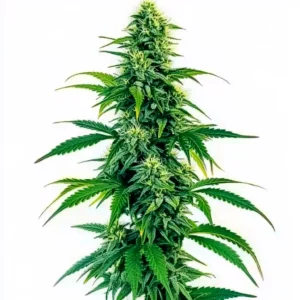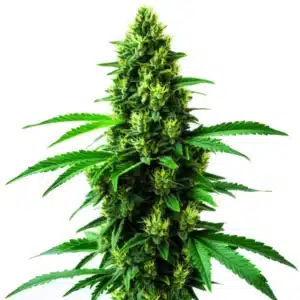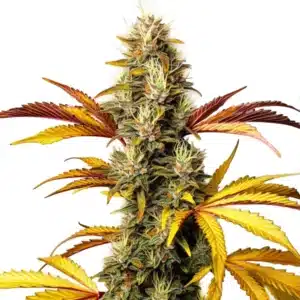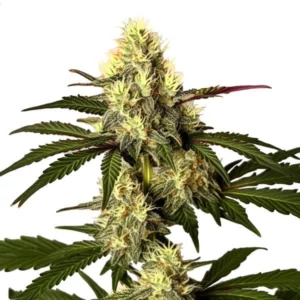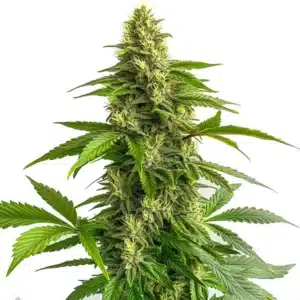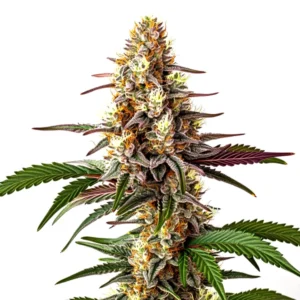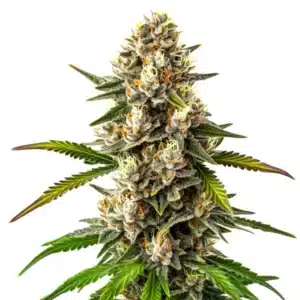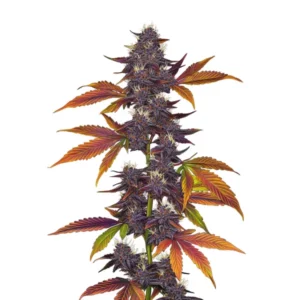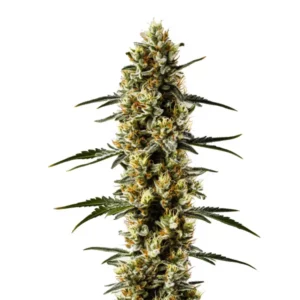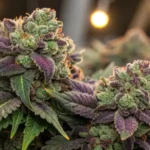
Cannabis Treatment for Lupus: Key Findings
Overview of Cannabis Treatment for Lupus
Historical Context and Traditional Uses
Ancient healers used various herbs to alleviate inflammatory symptoms, and some traditional practices incorporated cannabis treatment for lupus as part of holistic remedies. Early practitioners prepared plant infusions to help ease joint pain and fatigue, which are common in lupus. These time-tested methods laid the groundwork for later scientific inquiry and modern applications that consider natural cannabis treatment as a complementary approach to managing symptoms.
Historical records show that traditional herbal remedies for autoimmune conditions often included cannabis. Early natural treatments aimed to calm the body’s inflammatory responses, providing relief to those suffering from chronic pain and discomfort.
Recommended Strains
Acapulco Gold
|
|
THC | 15% - 19% (Medium) |
|
|
Type | Feminized |
|
|
Yield | Medium |
|
|
Phenotype | 30% Indica / 70% Sativa |
Acapulco Gold Autoflower
|
|
THC | 20% - 24% (Medium) |
|
|
Type | Autoflowering |
|
|
Yield | Medium |
|
|
Phenotype | 30% Indica / 70% Sativa |
Modern Approaches in Lupus Management
Contemporary medical practices now consider cannabis treatment for lupus as an adjunct to conventional therapies. Researchers and clinicians evaluate natural cannabis products for their potential to modulate immune responses and reduce inflammation. Many patients find that adding cannabis treatment to their regimen may help relieve pain and improve overall comfort. Clinical observations support the use of natural treatments to supplement standard care for lupus.
Promos & Deals
Scientific Perspectives on Cannabis Treatment for Lupus
Cannabinoid Mechanisms and Immunomodulation
Laboratory studies indicate that cannabinoids can interact with immune system receptors to modulate inflammatory processes. Scientific research suggests that cannabis treatment might help regulate immune responses by reducing overactive inflammation, a key challenge in lupus. Natural compounds appear to influence cellular pathways that mediate inflammation, potentially easing symptoms for patients who incorporate this treatment
Detailed experiments using cellular assays have shown that cannabinoids can reduce inflammatory markers in models of autoimmune activity. This mechanism forms the scientific basis for considering cannabis treatment for lupus as a supportive therapy that may help alleviate some of the chronic inflammation associated with the condition.
Research Evidence and Clinical Outcomes
Clinical studies examining cannabis treatment for lupus have reported promising signs of symptom relief in some patients. Research evidence shows that targeted cannabis formulations may help diminish joint pain and fatigue. Although results vary, several trials have noted improvements in patient comfort and quality of life when natural cannabis products are used alongside traditional treatments. Ongoing research continues to refine dosage and product formulation to optimize cannabis treatment for lupus.
Healthcare professionals have observed that patients using cannabis treatment for lupus sometimes experience better overall well-being. These clinical outcomes support the adjunctive use of natural therapies to ease some of the burdens of lupus while emphasizing that cannabis is not a replacement for conventional treatment.
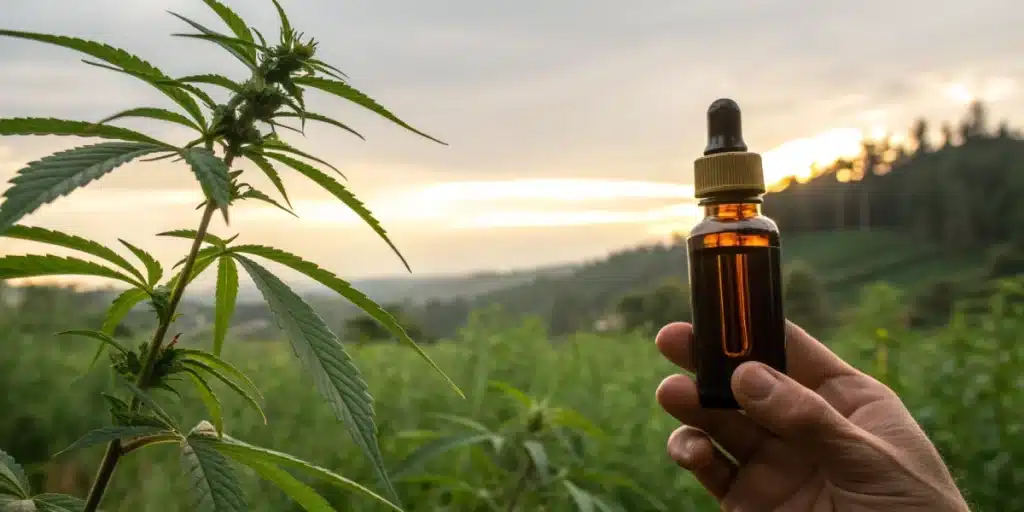
Integrative Strategies for Managing Lupus with Cannabis
Combining Natural Therapies with Conventional Treatments
Many clinicians now incorporate cannabis treatment for lupus alongside standard medications such as anti-inflammatories and immunosuppressants. This integrative strategy aims to support overall well-being by combining the potential benefits of natural cannabis products with established therapeutic regimens. Patients who add cannabis treatment for lupus may experience reduced inflammation and improved joint mobility. Such combined approaches offer additional support without replacing traditional methods, providing a balanced way to manage complex symptoms.
Integrating these treatments requires careful scheduling and monitoring. Clinicians tailor regimens so that cannabis treatment for lupus complements, rather than interferes with, conventional care. Aligning natural compounds with standard practices helps create a strategy that supports both symptom management and overall quality of life.
Personalized Dosage and Delivery Considerations
Effective use of cannabis treatment for lupus relies on personalized dosage and careful selection of delivery methods. Healthcare providers typically start patients on low doses and adjust gradually based on individual response. Options such as oils, capsules, and vaporized forms allow for flexible administration tailored to patient needs. This customized approach ensures that natural therapies provide optimal support without adverse effects, resulting in a treatment plan that supports comfort and safety.
Clinicians work closely with patients to determine the most appropriate dosing schedule. This personalized method helps maximize potential benefits while minimizing side effects.
Safety and Regulatory Standards in Cannabis Treatment for Lupus
Legal Framework and Quality Control Protocols
Cannabis treatment for lupus is subject to strict legal and regulatory standards designed to ensure product safety and consistency. Regulatory agencies require rigorous testing for purity, potency, and contaminants in every natural cannabis product. Manufacturers adhere to stringent protocols during cultivation, extraction, and packaging. These measures ensure that patients receive safe, reliable cannabis treatment for lupus that meets established legal benchmarks.
Reliable quality control builds trust in natural therapies. Certification processes and regular audits maintain high standards in product formulation. Legal frameworks support transparency in production and marketing, ensuring that only quality natural products reach the market. This commitment to safety reassures patients and healthcare providers who use cannabis as a supportive therapy.
Guidelines for Safe Consumption and Storage
Patients using cannabis treatment for lupus must follow safe practices to preserve product integrity. Adhering to prescribed dosages, storing products in cool, dry places away from light, and following manufacturer instructions help maintain potency and minimize risks. Clear usage guidelines are essential for ensuring that cannabis treatment provides consistent, beneficial effects while reducing the chance of side effects.
Safe consumption practices are critical for effective use. Healthcare professionals emphasize the importance of sourcing products from reputable suppliers and following dosing instructions meticulously.
Industry Trends and Market Innovations
Emerging Product Formulations and Technological Advances
Recent industry innovations have led to the development of new formulations designed specifically for cannabis treatment. Advances in extraction technology and product stabilization have improved the potency and consistency of natural cannabis products. Manufacturers now offer a range of formulations, such as tinctures, capsules, and topical creams, that aim to deliver targeted relief for lupus symptoms.
These advancements have spurred the creation of products with consistent cannabinoid profiles and enhanced bioavailability. Companies invest in research to ensure that their natural products meet high standards of safety and efficacy, providing better support for patients managing lupus symptoms.
Consumer Trends and Market Dynamics
Market analysis shows a growing consumer interest in natural therapies for chronic conditions like lupus. Demand for high-quality cannabis treatment for lupus products has increased as patients seek reliable, standardized formulations to support symptom management. Industry trends reflect a shift toward transparency, with companies providing detailed lab results and certifications. This market dynamic drives continuous innovation and ensures that consumers have access to effective natural treatment options.
In-Depth Discussion on Cannabis Treatment for Lupus
The discussion on cannabis treatment for lupus encompasses historical methods, scientific research, integrative strategies, and market innovations. Researchers, clinicians, and industry experts collaborate to evaluate the potential benefits of natural cannabis products in alleviating lupus symptoms. This conversation focuses on measurable improvements in inflammation, pain, and overall quality of life while emphasizing that cannabis treatment for lupus is a complementary therapy rather than a standalone cure.
By combining insights from diverse fields, stakeholders develop comprehensive approaches that integrate natural therapies with established medical protocols. This multifaceted conversation provides valuable information for patients and providers seeking to enhance conventional treatment methods with additional natural support.
Collaboration among healthcare professionals and researchers continues to refine integrative strategies for lupus care. These collective efforts aim to improve patient comfort and manage complex symptoms effectively through the careful incorporation of natural therapies.
Additional Insights on Cannabis Treatment for Lupus
Additional insights on cannabis treatment for lupus arise from ongoing research and evolving market trends. Advanced analytical techniques allow for precise measurement of cannabinoid concentrations and product consistency. Healthcare providers rely on updated research findings to refine treatment strategies, ensuring that natural cannabis products effectively support symptom management.
Continuous improvements in cultivation and extraction techniques have resulted in products that better meet safety and efficacy standards. Manufacturers focus on sustainable practices and enhanced quality control to provide high-quality natural therapies. As more clinical evidence accumulates, the acceptance of cannabis treatment for lupus grows among both patients and healthcare providers, fostering a dynamic marketplace for natural treatments.
Practical Considerations
Patient selection is critical when considering cannabis treatment for lupus. Healthcare providers evaluate each patient’s overall health, symptom severity, and current treatment regimen to determine if natural cannabis products might offer supportive benefits. Not every patient will respond the same way; therefore, individualized assessments help identify those who may experience improved comfort and symptom relief.
Integrating cannabis treatment for lupus into overall health management requires collaboration among specialists such as rheumatologists, immunologists, and primary care physicians. Providers develop customized treatment plans that combine natural therapies with conventional medications to maximize symptom relief while minimizing side effects. Regular monitoring and dosage adjustments are essential to maintain the balance and effectiveness of the overall therapeutic strategy.
Current Research and Perspectives
Ongoing research into natural therapies focuses on evaluating the effectiveness of cannabinoids in modulating immune responses. Scientists conduct laboratory studies and early-phase clinical trials to assess how specific cannabis compounds affect inflammatory processes and autoimmune activity. Preliminary data suggest that cannabis treatment for lupus may help reduce inflammatory markers and improve patient comfort when used as an adjunct to standard care. Researchers continue to refine dosage and formulation to optimize supportive benefits.
Clinical perspectives on cannabis treatment for lupus are increasingly informed by rigorous scientific studies. Oncologists and rheumatologists are considering natural cannabis products as potential complementary therapies to conventional treatments. Researchers collect data on dosage, product safety, and patient responses to refine integrative treatment protocols.
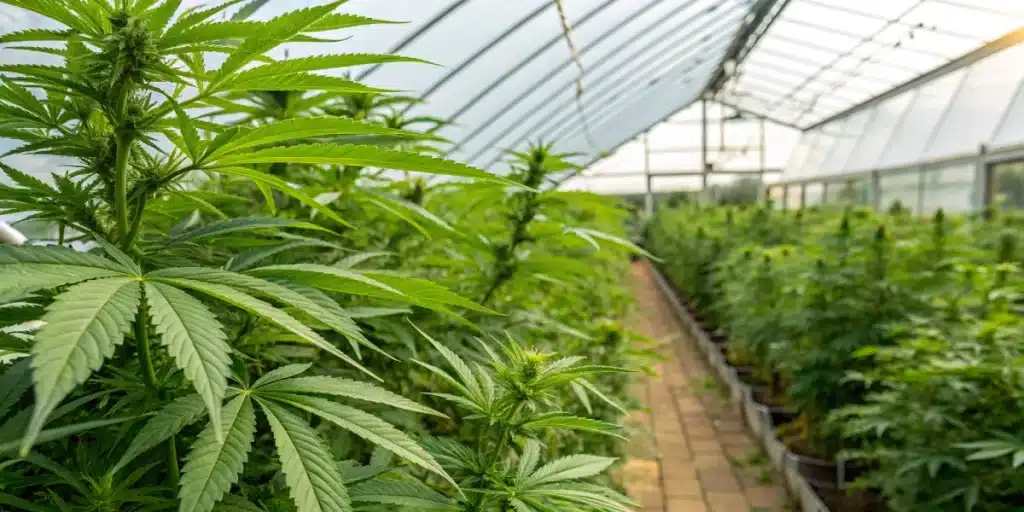
FAQs about cannabis treatment for lupus
What benefits does cannabis treatment for lupus offer?
Cannabis treatment for lupus may help reduce inflammation, joint pain, and fatigue associated with the condition. Clinical studies suggest that natural cannabinoids can ease symptoms when used alongside conventional therapies. Patients report improved quality of life and greater overall comfort through this supportive approach. The natural properties of cannabis treatment for lupus assist in managing flare-ups and provide additional relief, offering a safe adjunctive option in comprehensive lupus care.
How do experts determine the appropriate use?
Experts determine the appropriate use of cannabis treatment for lupus by analyzing cannabinoid profiles, assessing clinical research data, and monitoring patient responses. They evaluate product quality and safety standards, then tailor dosages and delivery methods to individual needs. This systematic process ensures that natural cannabis products effectively complement standard treatments while reducing symptoms. Healthcare providers collaborate closely with patients to customize treatment plans that provide measurable benefits and enhanced comfort.
What safety protocols are followed when using cannabis treatment for lupus?
Healthcare professionals enforce strict safety protocols for cannabis treatment for lupus by ensuring products undergo extensive laboratory testing for purity, potency, and contaminants. Regulatory agencies set rigorous standards, and manufacturers adhere to quality control protocols. Patients receive detailed dosing instructions and guidelines for proper storage and usage. These precautions help minimize risks and maintain the efficacy of natural cannabis products, ensuring that this supportive therapy remains safe and beneficial alongside conventional medical care.



